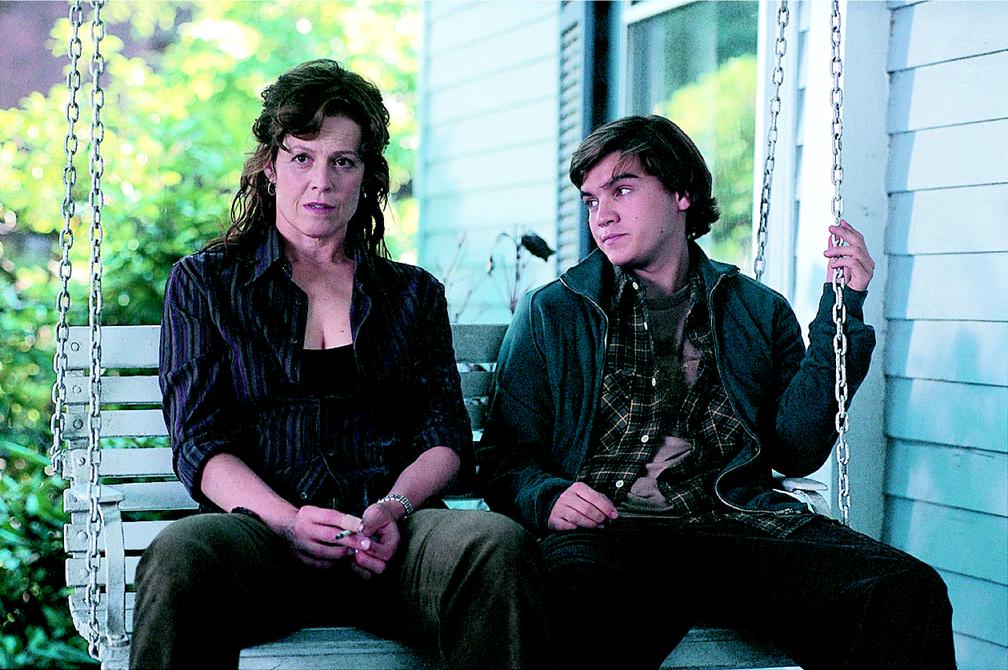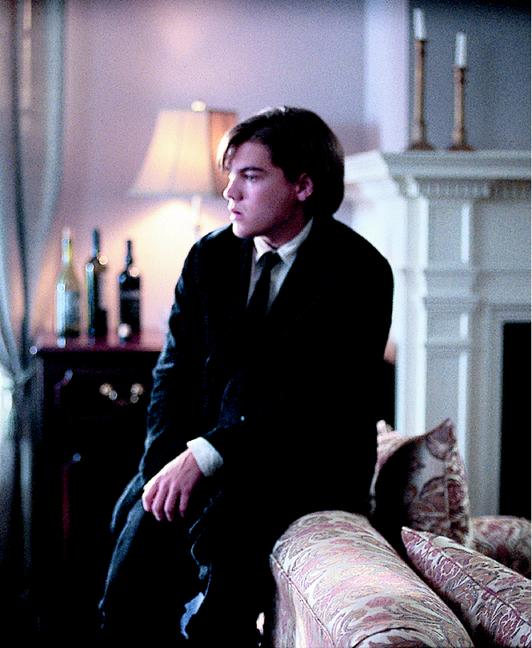The resultant drama, Imaginary Heroes, made its way around the film fest circuit, garnering mixed reviews and a distribution deal from Sony Pictures Classics.
The film contains a lot of great actors in service to a well-meaning script–well-meaning to the point of self-importance. Unhappiness never looked so beautiful and so gol-darned significant as it does in Harris' overly sentimental world.
Sigourney Weaver and Jeff Daniels play the unhappily married mater and pater of a dysfunctional suburban clan. Suffering from a bad case of “Golden Child Syndrome,” the couple expend all of their attention and affection on their eldest son Matt (Kip Pardue, The Rules of Attraction), a championship swimmer with a room full of trophies. Ignored in this exchange are the couple's college-age daughter Penny (Michelle Williams, “Dawson's Creek”) and their other overshadowed, coming-of-age son Tim (Emile Hirsch, The Girl Next Door).
For reasons largely unexplained, Matt actually hates swimming, himself and life in general. Shortly after the opening credits roll, he kills himself, leaving his family to wallow in an hour and 45 minutes worth of cinematic pain and regret. This is dysfunction with a capital D. Dad starts swigging straight from the bottle and stops going to work. Mom starts smoking pot and hitting on college boys. Tim does whatever drugs are handy and gets all angsty in an artistically sensitive way.
Some people wear their grief like a badge. These folks wear their grief like a freakin' Olympic medal.
The acting is all rather unimpeachable. Hirsch, who is called upon to narrate and carry most of the film's dramatic weight, does the mopey, Catcher in the Rye thing very well. Having turned over this field previously in The Girl Next Door, The Emperor's Club and The Dangerous Lives of Altar Boys, he's got it down pat–right down to the last stray strand of hair in the eyes. Weaver remains a mesmerizing actress and is still shockingly hot for a women now called upon to play unsatisfied suburban mom roles. (The gulf between this role and her ones in Tadpole and The Ice Storm is not a wide one.)
Weaver's character, the only one in this glum enclave who seems to have retained some sense of humor and perspective, is almost enough to make you wish this wasn't an ensemble effort. Dad's a cold perfectionist who just needs a slap of reality. Tim's the sensitive type who's ultimately going to turn all this pain into something artistic anyway. It's just a matter of how much pain they'll be called upon to endure before the inevitable “hug and forgive” moment.
The real problem with Imaginary Heroes is the gap between writer/director Dan Harris' ambition and his skill. He's a perceptive, emotional writer, but his characters rarely have the opportunity to act human–they're too busy suffering Herculean grief or reciting important life philosophies. Harris tosses in the occasional ironic comic moment, but these rare punch lines just don't gibe with the film's resolutely downbeat tone.
If it were just about the beautifully miserable repercussions of a suicide in suburbia, Imaginary Heroes would be a tolerable little tearjerker. But Harris tries too hard to impress. Where one Morrissey album's worth of misery would have sufficed, Harris piles on eight or nine: sexual confusion, infidelity, abuse, addiction, illness, car crashes. Shocking family secrets pile upon shocking family secrets until it's more than this top-heavy Jenga tower of tragedy can bear.
What should have been a simple kitchen sink tragedy is inflated into a Shakespearean soap opera already well explored by the likes of Miracle Mile, In the Bedroom and The Son's Room. Even so, the film has its moments of intellectual clarity and emotional punch. Filmmaker Dan Harris may be suffering from premature auteur syndrome, but he's hardly an untalented kid. A few more years in the Hollywood grist mill and his hyperactive urge to impress will have quieted down a bit. Then we'll see some tragedy.




